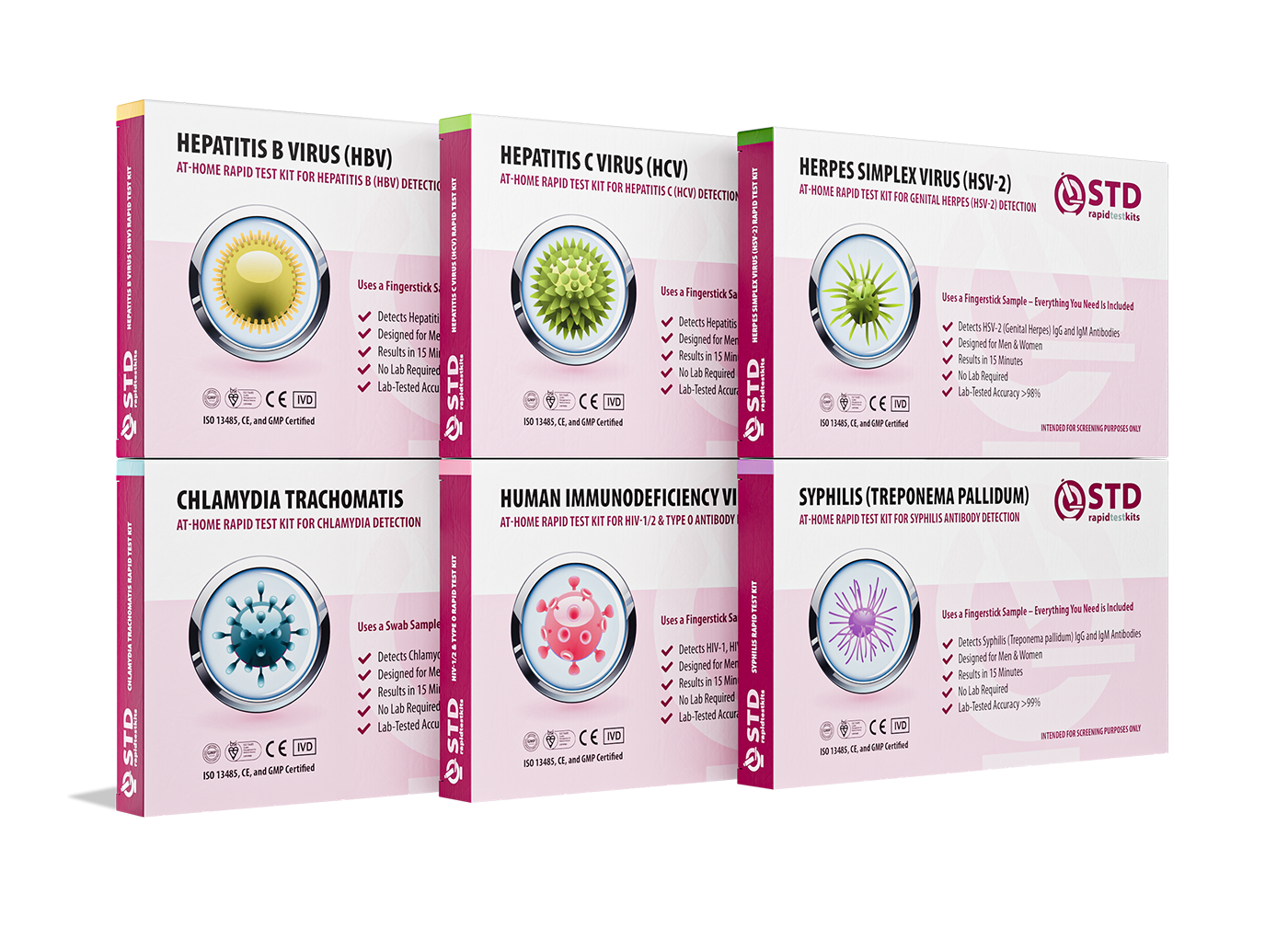How Oral Sex Can Transmit STDs
The Biggest Fallacy: Sexually Transmitted Diseases Cannot Occur Through Oral or Anal Intercourse
A major myth regarding sexually transmitted diseases is that oral and anal intercourse are safe and these cannot lead to any sexually transmitted diseases. They are, nevertheless, less dangerous than vaginal sex, although far from being safe as well.
- Oral Sex Risks: The risks of oral sex also include the transmission of sexually transmitted diseases, including gonorrhea, syphilis, herpes, and human papillomavirus. The risk of infection still exists even if a person does not show any outward sign of infection.
- Anal Sex Risks: Since the tissue involved with anal sex is so sensitive and also easily torn, there is an increased risk of transmitting some sexually transmitted diseases, such as HIV.
The best ways to reduce these risks are through regular testing, as well as protection such as dental dams or condoms.

Myth No. 2: I Must Have an STD If I Am Symptom-Free
Another destructive myth is the belief that sexually transmitted diseases always appear with some external signs and symptoms. Chlamydia, gonorrhea, and HPV are a few of the STDs that may not show up for a long time.
Long-term untreated STDs can lead to complications such as infertility, chronic pain, and an enhanced susceptibility to other infections. Therefore, all sexually active individuals should undergo periodic testing for STDs even if they have no symptoms.
Myth No. 3: Only Those Who Have Multiple Sex Partners Need to Undergo an STD Test
It is also widely believed that any person who engages in non-monogamous relationships or has more than one sexual partner should get tested for STDs. Neither the relationship status nor the number of partners defines a person's risk for acquiring a sexually transmitted infection.
Given the nature of some illnesses being latent and unintentionally passed on, even committed partnerships should consider testing periodically. Testing regularly can also ease one's mind and foster a candid conversation with your partners about sexual health.
Order Now $129.00 $343.00 Check Your STD Status in Minutes
Test at Home with Remedium
7-in-1 STD Test Kit




For all 7 tests
Myth No. 4: Home STD Testing Kits Aren't Accurate
Thanks to medical technological advancements, home STD test kits have become a reliable and readily available option for testing. Results from these kits often coincide with clinical testing, furthering their accuracy to a whole new level.
Anyone who is apprehensive about visiting a clinic can have the privacy and convenience of an at-home kit to assess their status. They are a very valuable resource for preventative sexual health management since they ensure accurate results when followed precisely.
Myth No. 5: STDs Do Not Affect Everybody
They are not discriminatory diseases. Contrary to common misconception, any age, gender, orientation, or income bracket can have a sexually transmitted disease if one engages in sexual activity.
Many individuals may feel they do not need to be concerned since they do not fit into one or more of the so-called demographic groups. But the first step to prioritizing testing and prevention is realizing that STDs can affect anyone.

Myth No. 6: An STD Can't Strike Again After You've Been Treated
Another myth is that you couldn't get the same STD again after you'd been treated and cured. While the treatment can cure many STDs, such as chlamydia and gonorrhea, it doesn't protect you against getting the disease again.
This is because protective measures and testing should be continuously observed, even after treatment, as reinfection may occur upon exposure.
Consistent Testing and Its Importance
Regular testing for sexually transmitted diseases helps in protecting public and individual health. The following are the reasons why early detection through testing is important:
- Discovering Infections That Don't Show Any Outward Signs of Severity: One must undergo testing in order to ascertain their condition, as a number of STDs do not manifest any symptoms.
- Keeping Issues at Bay in the Long Run: It is possible to avoid serious health problems like infertility and chronic diseases by detecting and treating them early.
- Breaking the Chain of Transmission: Knowing your status is essential in avoiding accidentally infecting other people with a sexually transmitted disease.
Increased access to home testing kits for STDs has made it easier, and less obvious, than ever to check on your health status.
Order Now $119.00 $294.00 Check Your STD Status in Minutes
Test at Home with Remedium
6-in-1 STD Test Kit




For all 6 tests
Removing Barriers to Testing
Following are some of the possible responses to the misconceptions and myths about sexually transmitted diseases:
- Public Health Initiatives: Public health initiatives and in-school initiatives should raise awareness about the dangers of asymptomatic infections and the value of routine testing.
- At-Home Testing Kits: By providing a discreet and easy way to check for sexually transmitted diseases (STDs), at-home testing kits are helping to remove obstacles like shame and lack of clinic access.
- Open Communication: Another way to reduce the stigma surrounding sexual health problems and to engage partners more actively in testing and prevention is through open communication.
- Routine Testing in Healthcare: Incorporating testing into routine healthcare reduces stigma and anxiety often associated with testing.
FAQs
1.- Oral sex: is it possible to get an STD?
Sure, oral sex can spread sexually transmitted diseases including herpes, gonorrhea, and syphilis.
2.- Are symptoms present in every sexually transmitted disease?
No, most sexually transmitted diseases (STDs), including chlamydia and HPV, don't often cause any noticeable symptoms.
3.- Could you tell me whether an at-home STD test was accurate?
Yes, home STD test kits are incredibly accurate and dependable when used properly. They can even match the results of clinical tests.
4.- In a monogamous relationship, is testing necessary?
Yes, that is a good idea to check on the health of both spouses periodically, especially if their families have a history of some unidentified diseases.
5.- What age groups are most commonly affected by sexually transmitted diseases?
Yes, any sexually active person can get a sexually transmitted disease, regardless of their age.
6.- Can you get the same sexually transmitted disease again?
Since therapy does not produce immunity, reinfection is a risk after subsequent exposure.
7.- Does the use of condoms prevent sexually transmitted diseases?
Although the risk is significantly reduced, using a condom is not foolproof against some STDs such as herpes or HPV.
8.- Should I get my blood tested regularly?
Sexually active individuals should get tested annually, or more frequently if new partners present themselves or there are multiple partners.
9.- Can there be consequences if the STDs are left untreated?
Yes, untreated sexually transmitted infection can lead to severe health issues such as infertility, chronic pain, and a heightened risk for other infections.
10.- What is the risk from anal and oral sex?
No, compared with vaginal intercourse, the risks of both kinds of sex transmission vary, though they are still potential.

Break the Stigma
Some people avoid testing and treatment for sexually transmitted diseases due to stigma, misinformation, and unnecessary worry that emanates from some common myths about the conditions. By clearing the air on these myths, we provide people with the tools they need to make educated choices about their sexual health.
It all goes around prevention and health management via regular testing for STDs. One can remain more proactive, as it has been ever so easy with at-home test kits for STDs. They are reliable, private solutions. Get tested, learn your status, and take the right care for your health.
Breaking the stigma, taking care of oneself goes hand in hand. Learn about the confidence-inspiring at-home STD testing kits available today.










